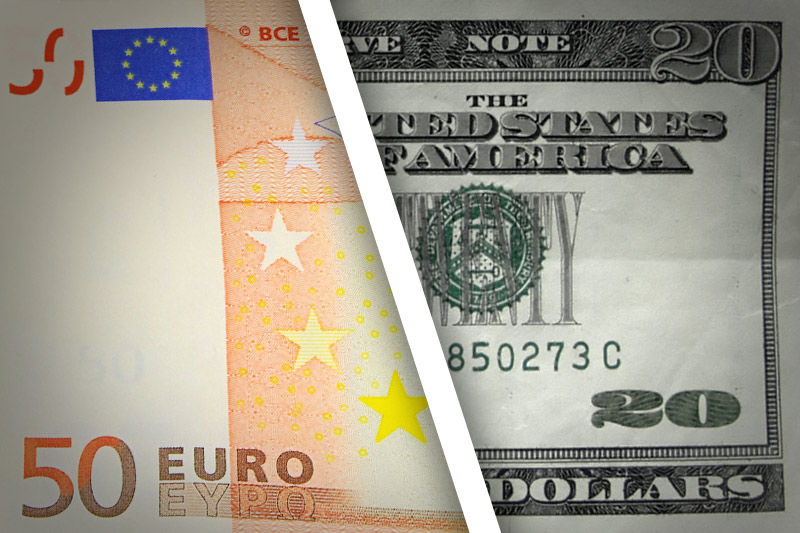Investing.com - The euro pulled away from the session low against the U.S. dollar on Wednesday, but the single currency remained vulnerable amid ongoing uncertainty over prospects for a Spanish bailout, while worries over the global economic outlook also weighed.
EUR/USD pulled back from 1.2836, the pair’s lowest since October 1, to hit 1.2891 during European afternoon trade, inching up 0.04%.
The pair was likely to find near-term support at 1.2802, the low of October 1 and resistance at 1.2990, Tuesday’s high.
The euro remained under pressure amid ongoing uncertainty over Spain’s position on requesting external financial aid and what form a bailout would take.
Earlier in the day, the International Monetary Fund said the crisis in the euro zone remains the greatest threat to the global economy and warned that policymakers need to urgently strengthen fiscal and financial ties within the euro area.
Elsewhere, Italy saw yields rise at an auction of short-term government debt, reflecting investor nervousness over the risk of contagion from Spain.
Italy’s Treasury auctioned EUR8 billion of 12-month bonds at an average yield of 1.94% up from 1.69% previously and the highest level since mid-August.
Meanwhile, concerns over whether international creditors will extend loans to Greece continued, as the country struggles to meet deficit reduction targets.
The euro was fractionally lower against the pound, with EUR/GBP dipping 0.04% to 0.8048, but edged higher against the yen, with EUR/JPY easing up 0.16% to 100.98.
Also Wednesday, bilateral talks between Spanish Prime Minister Mariano Rajoy and French President Francois Hollande were continuing in Paris.
EUR/USD pulled back from 1.2836, the pair’s lowest since October 1, to hit 1.2891 during European afternoon trade, inching up 0.04%.
The pair was likely to find near-term support at 1.2802, the low of October 1 and resistance at 1.2990, Tuesday’s high.
The euro remained under pressure amid ongoing uncertainty over Spain’s position on requesting external financial aid and what form a bailout would take.
Earlier in the day, the International Monetary Fund said the crisis in the euro zone remains the greatest threat to the global economy and warned that policymakers need to urgently strengthen fiscal and financial ties within the euro area.
Elsewhere, Italy saw yields rise at an auction of short-term government debt, reflecting investor nervousness over the risk of contagion from Spain.
Italy’s Treasury auctioned EUR8 billion of 12-month bonds at an average yield of 1.94% up from 1.69% previously and the highest level since mid-August.
Meanwhile, concerns over whether international creditors will extend loans to Greece continued, as the country struggles to meet deficit reduction targets.
The euro was fractionally lower against the pound, with EUR/GBP dipping 0.04% to 0.8048, but edged higher against the yen, with EUR/JPY easing up 0.16% to 100.98.
Also Wednesday, bilateral talks between Spanish Prime Minister Mariano Rajoy and French President Francois Hollande were continuing in Paris.
